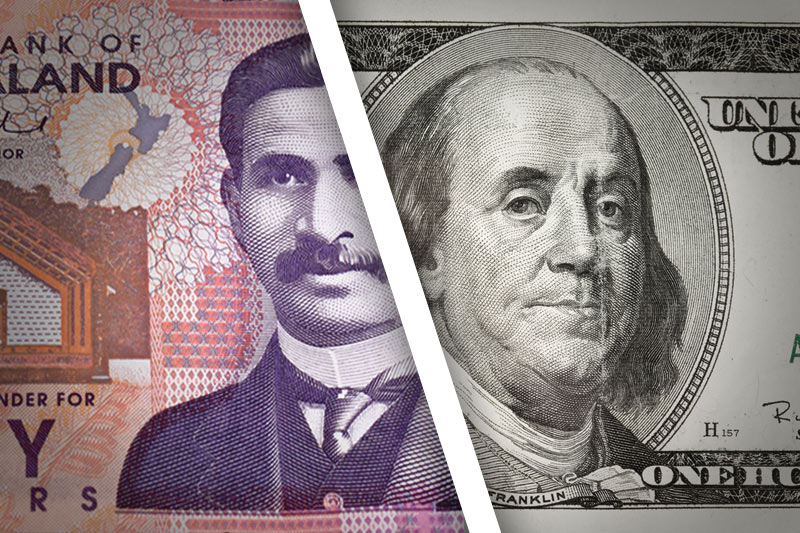Investing.com - The New Zealand dollar rose to a five-week high against the U.S. dollar on Wednesday, amid expectations that U.S. President Barack Obama’s re-election would boost chances that the Federal Reserve’s policy of quantitative easing will continue.
NZD/USD hit 0.8309 during late Asian trade, the pair’s highest since October 2; the pair subsequently consolidated at 0.8293, gaining 0.23%.
The pair was likely to find support at 0.8236, the session low and resistance at 0.8335, the high of October 2.
President Obama defeated Republican contender Mitt Romney, securing the 270 votes in the electoral college needed to win the race.
Investors’ attention turned to the fiscal cliff, USD500 billion of automatic tax hikes and spending cuts due to come into effect on January 1 unless lawmakers can reach an agreement, clouding the outlook for U.S. and global growth.
Market sentiment was weighed by uncertainty ahead of a Greek parliamentary vote later in the day, on an austerity bill needed for Athens to secure its next installment of financial aid.
The kiwi was fractionally lower against the euro, with EUR/NZD easing up 0.08% to 1.5506.
Later Wednesday, the euro zone was to produce official data on retail sales, while Germany was to produce official data on industrial production.
New Zealand was to produce government data on employment change and the unemployment rate.
NZD/USD hit 0.8309 during late Asian trade, the pair’s highest since October 2; the pair subsequently consolidated at 0.8293, gaining 0.23%.
The pair was likely to find support at 0.8236, the session low and resistance at 0.8335, the high of October 2.
President Obama defeated Republican contender Mitt Romney, securing the 270 votes in the electoral college needed to win the race.
Investors’ attention turned to the fiscal cliff, USD500 billion of automatic tax hikes and spending cuts due to come into effect on January 1 unless lawmakers can reach an agreement, clouding the outlook for U.S. and global growth.
Market sentiment was weighed by uncertainty ahead of a Greek parliamentary vote later in the day, on an austerity bill needed for Athens to secure its next installment of financial aid.
The kiwi was fractionally lower against the euro, with EUR/NZD easing up 0.08% to 1.5506.
Later Wednesday, the euro zone was to produce official data on retail sales, while Germany was to produce official data on industrial production.
New Zealand was to produce government data on employment change and the unemployment rate.
